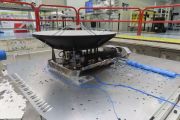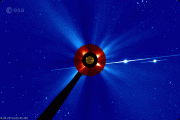
Copernical Team
As reflective satellites fill the skies, students are making sure astronomers can adapt
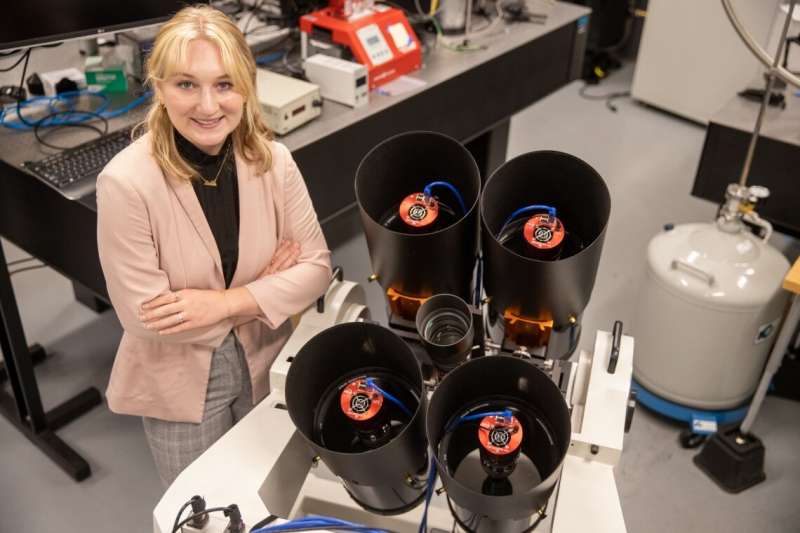
As satellites crawl across the sky, they reflect light from the sun back down to Earth, especially during the first few hours after sunset and the first few hours before sunrise. As more companies launch networks of satellites into low-Earth orbit, a clear view of the night sky is becoming rarer. Astronomers, in particular, are trying to find ways to adapt.
Team troubleshoots asteroid-bound Lucy spacecraft across millions of miles
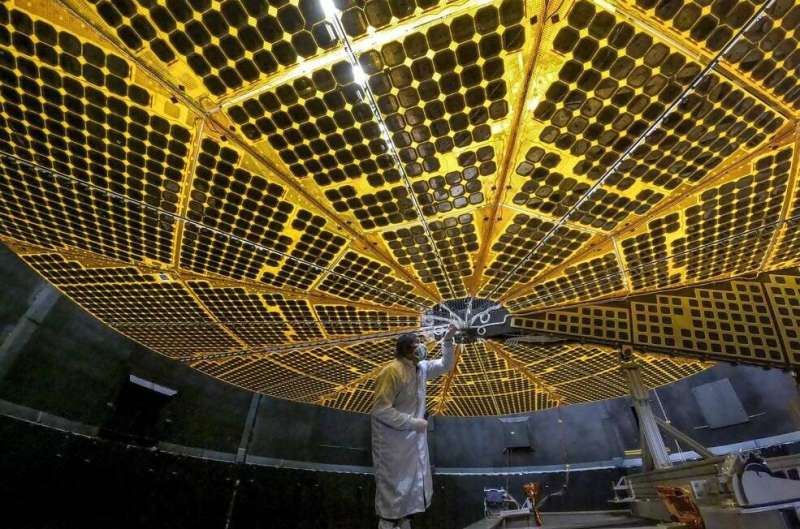
Following the successful launch of NASA's Lucy spacecraft on Oct. 16, 2021, a group of engineers huddled around a long conference table in Titusville, Florida. Lucy was mere hours into its 12-year flight, but an unexpected challenge had surfaced for the first-ever Trojan asteroids mission.
Data indicated that one of Lucy's solar arrays powering the spacecraft's systems—designed to unfurl like a hand fan—hadn't fully opened and latched, and the team was figuring out what to do next.
Teams from NASA and Lucy mission partners quickly came together to troubleshoot. On the phone were team members at Lockheed Martin's Mission Support Area outside of Denver, who were in direct contact with the spacecraft.
NASA's PUNCH mission announces rideshare with SPHEREx and new launch date
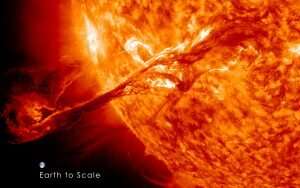
NASA's Polarimeter to Unify the Corona and Heliosphere (PUNCH) mission will share a ride to space with NASA's Jet Propulsion Laboratory's Spectro-Photometer for the History of the Universe, Epoch of Re-ionization, and Ices Explorer (SPHEREx) mission. The missions will launch no earlier than April 2025 on a SpaceX Falcon 9.
Video: Does space trash ever naturally break down?
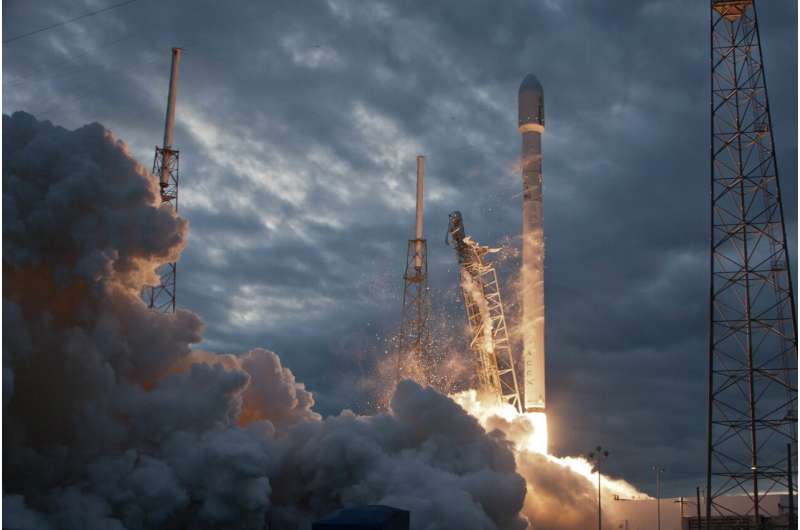
Remember when Elon Musk launched a car into space? That car's not just peacefully drifting through a vacuum—it's hurtling around the sun at 63,592 miles per hour, being bombarded by solar radiation. It might be in pieces, but these are not the same pieces it would be in if it were down here on Earth. That's because the environment in space breaks down materials differently.
But how long does it take to break down, and how is that car looking right about now?
Explore further
Space debris is coming down more frequently. What are the chances it could hit someone or damage property?

In the past week alone, we've seen two separate incidents of space debris hurtling back to Earth in unexpected places.
On Saturday there was the uncontrolled re-entry of a Chinese Long March 5B rocket over Malaysia. Yesterday outlets reported on some spacecraft parts that turned up in regional New South Wales—now confirmed to be from a SpaceX Crew-1 mission.
As the space industry grows, it's safe to say such incidents will only become more frequent—and they could pose a risk. But how much of a risk, exactly?
Chunks of metal hurtling towards us
Space debris refers to the leftover components of a space system that are no longer required. It might be a satellite that has reached the end of its life (such as the International Space Station), or parts of a rocket system that have fulfilled their purpose and are discarded.
To date, China has launched three Long March 5B rockets, and each has been deliberately left in an uncontrolled orbit.
Co-founder of Texas-based Dude Perfect is set to go to space
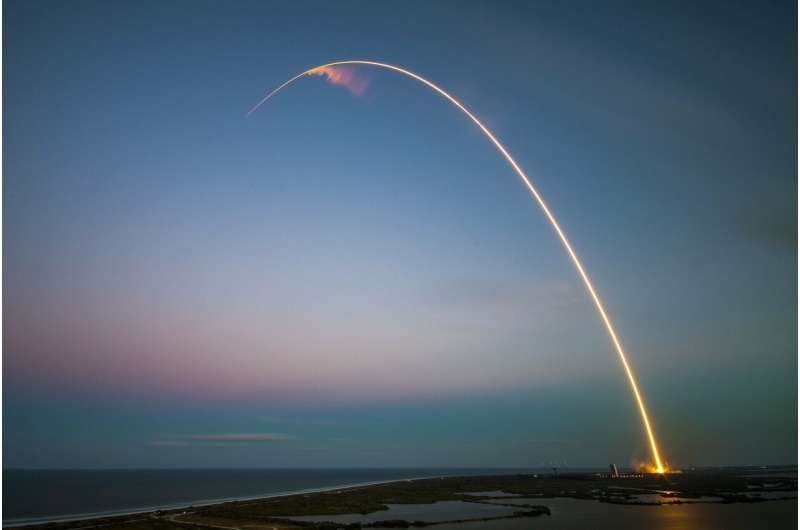
The third time really was the charm for Dude Perfect co-founder Coby Cotton.
Cotton and the four other founding members of the Frisco-based sports and entertainment company had their third model rocket competition at the start of July, and Cotton had lost the previous two. The only thing on the line during those competitions was a golden rocket trophy. This time, the prize was a trip to space.
Cotton's rocket soared 7,412 feet in the air, past all of the other competitors' rockets but nowhere near as high as he will be aboard the next Blue Origin rocket on his way to space. He will be a crew member on New Shepard's 22nd flight, which blasts off Thursday.
Cotton started the Dude Perfect YouTube channel with his twin brother and three of their college friends in 2009, after a video of them doing backyard basketball trick shots went viral. It has since grown to become the fourth-biggest sports channel on YouTube.
Amazon founder Jeff Bezos founded Blue Origin in 2000, with the mission of making it possible for millions of people to live and work in space.
Earth spun faster June 29, causing shortest day since 1960s
 The Earth spun faster around its axis on June 29, making it the shortest day since the planet's rotation began being measured with atomic clocks in the 1960s.
Earth completed one spin in 1.59 milliseconds shy of the typical 24 hours on June 29, according to Time and Date and The Guardian. The record comes as Earth has seen consistently shorter days in the past few years.
Earth's
The Earth spun faster around its axis on June 29, making it the shortest day since the planet's rotation began being measured with atomic clocks in the 1960s.
Earth completed one spin in 1.59 milliseconds shy of the typical 24 hours on June 29, according to Time and Date and The Guardian. The record comes as Earth has seen consistently shorter days in the past few years.
Earth's ESA names first 'astronaut' to fly on the Artemis I lunar mission
 The specially trained woolly astronaut, Shaun the Sheep, has been assigned a seat on the Artemis I mission to the Moon, it was announced today.
Shaun's assignment was announced by ESA's Director for Human and Robotic Exploration Dr David Parker.
David Parker said, "Shaun's mission assignment rounds off the first phase for the latest members of our astronaut corps, with Italian ESA as
The specially trained woolly astronaut, Shaun the Sheep, has been assigned a seat on the Artemis I mission to the Moon, it was announced today.
Shaun's assignment was announced by ESA's Director for Human and Robotic Exploration Dr David Parker.
David Parker said, "Shaun's mission assignment rounds off the first phase for the latest members of our astronaut corps, with Italian ESA as Images of EDL Debris
 When Perseverance landed on Mars on February 18, 2021 the entry, descent, and landing (EDL) hardware was discarded onto the surface at a safe distance away from the rover.
Some of that EDL hardware was later imaged by Perseverance and Ingenuity. For example on Sol 414 (April 19, 2022), the Ingenuity helicopter returned a detailed color image of the discarded parachute and backshell located
When Perseverance landed on Mars on February 18, 2021 the entry, descent, and landing (EDL) hardware was discarded onto the surface at a safe distance away from the rover.
Some of that EDL hardware was later imaged by Perseverance and Ingenuity. For example on Sol 414 (April 19, 2022), the Ingenuity helicopter returned a detailed color image of the discarded parachute and backshell located Momentus First Demonstration Mission Status Update #4
 Momentus Inc. (NASDAQ: MNTS), a U.S. commercial space company that plans to offer transportation and other in-space infrastructure services, today provided its fourth Mission Update on its inaugural Vigoride mission that launched on May 25. Since the Company's last update on June 29, Momentus has successfully deployed four additional customer satellites.
Momentus initially deployed two cus
Momentus Inc. (NASDAQ: MNTS), a U.S. commercial space company that plans to offer transportation and other in-space infrastructure services, today provided its fourth Mission Update on its inaugural Vigoride mission that launched on May 25. Since the Company's last update on June 29, Momentus has successfully deployed four additional customer satellites.
Momentus initially deployed two cus 

